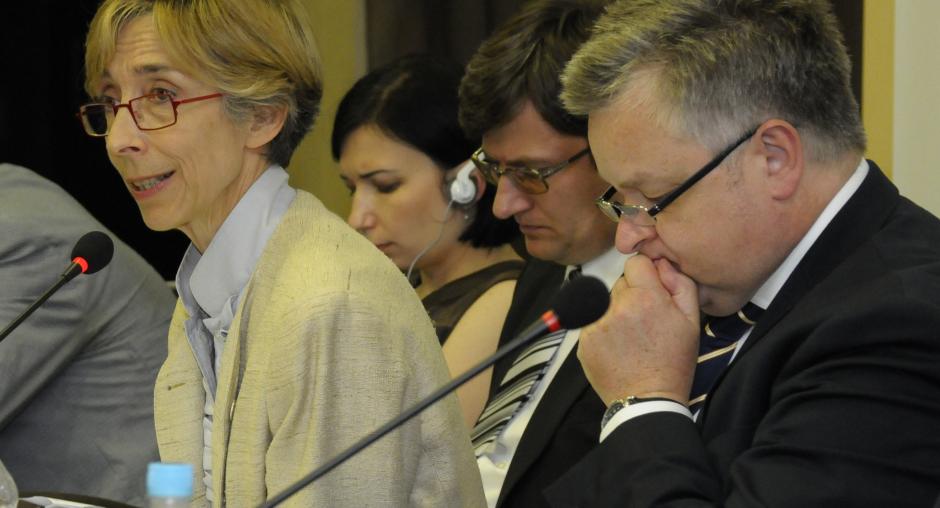Recommendations from final report on presidential election in Ukraine focus of discussions at OSCE / ODIHR event in Kyiv

KYIV, 15 July 2014 – Electoral reform in Ukraine and follow-up to recommendations made in the final report of the election observation mission sent by the OSCE Office for Democratic Institutions and Human Rights (ODIHR) for the 2014 early presidential election were the focus of a roundtable event in Kyiv today.
"ODIHR is committed to upholding the credibility and visibility of election observation, and the Office’s work in this area is anchored in basic principles of impartiality and professionalism," ODIHR Director Michael Georg Link said in his opening remarks at the event.
"This, our tenth election observation mission in Ukraine, observed a very high degree of transparency and co-operation on the part of the Ukrainian authorities. The election was characterized by the clear resolve of the authorities to hold what was a genuine election largely in line with international commitments and with a respect for fundamental freedoms in the vast majority of the country. This was despite the hostile security environment in two eastern regions and the increasing attempts to derail the process by armed groups in these parts of the country.”
Along with assessing where the presidential election had met these standards, the final report offers recommendations for addressing areas where it had fallen short. Eight of the 29 recommendations in the report were listed as priorities, focusing on the legal framework, election administration, the complaints and appeals process, special measures for voter registration, campaign finance and the role of the National Broadcasting Council.
These recommendations were at the centre of discussion among representatives from ODIHR and the Ministry of Foreign Affairs, as well as those from the Ukrainian parliament, the Central Election Commission, civil society and international organizations.
“The assessment of an election is only the first step toward offering concrete recommendations to help a country improve its electoral system,” said Tana de Zulueta, who headed the ODIHR election observation mission. “The discussion today took this further, examining how these recommendations can be integrated into the electoral reform process in Ukraine to deliver such improvements.”
The roundtable meeting was part of a visit organized by ODIHR in line with OSCE commitments obliging participating States to follow up on recommendations made in election mission reports.
“Ukraine remains committed to the programme declared by the President and Government on the implementation of recommendations by the OSCE/ODIHR mission with a view to further improving electoral rules, which are an inherent component of a political system,” said Oleksii Makeev, Head of the Department of Policy Analysis and Planning of Ukraine’s Foreign Ministry.
